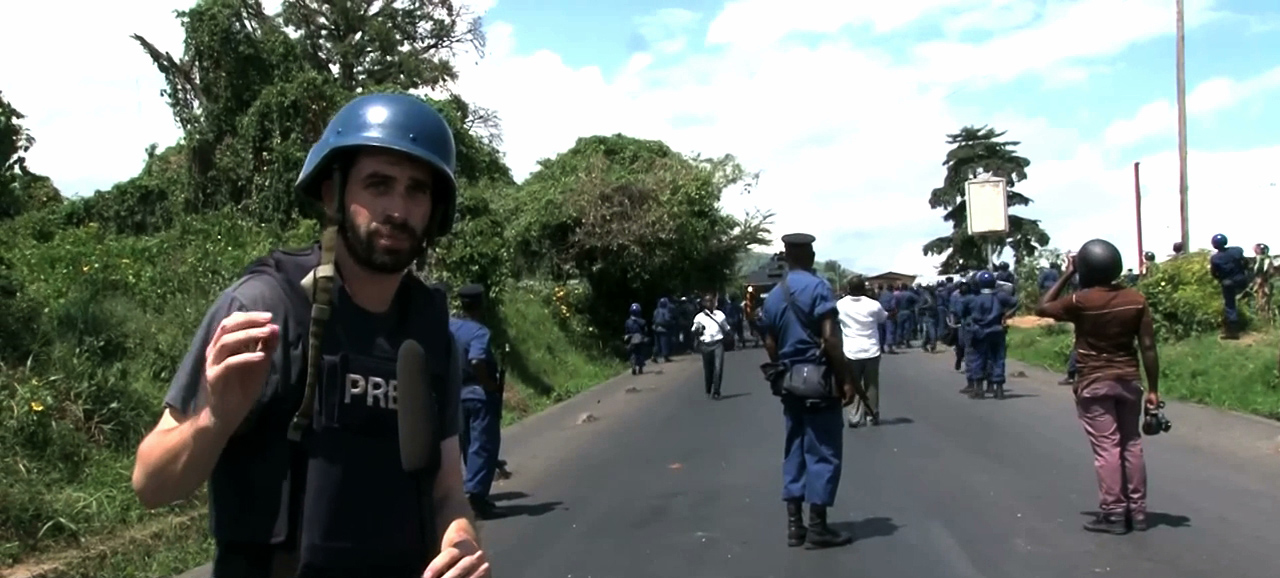Al Finch: Keeping journalists safe at home and abroad

BBG360 is a monthly interview series with professionals and difference makers in U.S. international media whose work is advancing the mission and priorities of the BBG.
Q&A
With the rise in hostility toward the press around the world, the BBG has become increasingly concerned about threats to its journalists, including imprisonment,intimidation and harassment. What’s the connection between these threats and the Insider Threat Program?
Since most of the threats to our journalists, both full-time and contractors, occur overseas, the Insider Threat Program stresses the need to practice “need to know” security. Specifically, journalists should not discuss their appointments, route of travel or topics of interviews with people who do not have a “need to know.” No one can trust anyone totally, and our journalists can very well end up being followed by people who do not have their best interests at heart. Where contractors and stringers are concerned, our reporters should not tout the fact that they are preparing a story for the Voice of America or any other medium that has written or broadcast stories critical of the local government, an organization or a terrorist group. By doing so, the reporter may be opening himself/herself up to bodily harm, a kidnapping or other harm.
What are examples where the IBB Office of Security has been notified of a possible threat against a BBG journalist?
Under the Insider Threat Program, the Office of Security has been at the forefront of tracking threats/attacks/arrests of BBG Journalists and freelancers operating around the world. Specific incidents have occurred in Syria, Iraq, Afghanistan, Pakistan, Burundi, Kenya, Ethiopia and West African nations such as Nigeria involving indigenous terrorist and-or criminal groups where VOA personnel have been threatened, beaten, detained illegally and questioned. Similar incidents have also occurred in China, Uzbekistan, Burundi and the Democratic Republic of Congo. In one case, a reporter’s home was bombed by hand grenades. In these situations, the Office of Security collects the information, works with the victim and his/her network and makes recommendations regarding ways to possibly avoid similar attacks.
The Office of Security also often takes immediate action to notify the U.S. State Department’s Diplomatic Security (DS) Command Center to engage DS Agents abroad in the country of the incident to ensure that BBG personnel receive any and all available assistance. This action led to the evacuation of more than five contract employees who were reporting from Bujumbura, Burundi during the attempted coup on May 13, 2015. Other assistance was rendered to a contract reporter on the border of Nigeria and Cameroon who was being sought by hostiles, possibly Boko Haram, who did not like his reporting on mercenaries joining Nigerian forces to track and kill terrorists. Other successes included the relocation of an Urdu reporter who was safely extracted from the Northwest Frontier Province of Pakistan to Islamabad for his safety when threatened. Recently, the Office of Security helped provide real-time updates on attacks/questioning of our personnel in China, Turkey and northern Iraq (Kurdish service reporter). We also gave reports to language service chiefs on what is going on in Uzbekistan and Ukraine.
What’s the purpose of the Insider Threat Program in relation to the BBG? What threats are agency personnel encouraged to recognize and report to the IBB Office of Security?
The BBG is a U.S. government agency that has personnel, physical plants and equipment located overseas that can be vulnerable to terrorism, sabotage and unauthorized disclosure of any proprietary information. We ask all personnel to report anything out of the ordinary, anything that is out of the norm of day-to-day operations. We subscribe to the statement, “IF YOU SEE SOMETHING, SAY SOMETHING!”
Is it true that there is a global threat to BBG’s facilities?
BBG facilities including bureaus, offices and transmission sites in West and East Africa, China, Russia, Pakistan and Burma are particularly vulnerable.
We know that press freedoms have declined in recent years. As a result, have you seen an increase in threats to journalists?
Yes I have. But even though press freedoms may be declining, we’re working hard to make sure that BBG journalists and facilities are safe.

